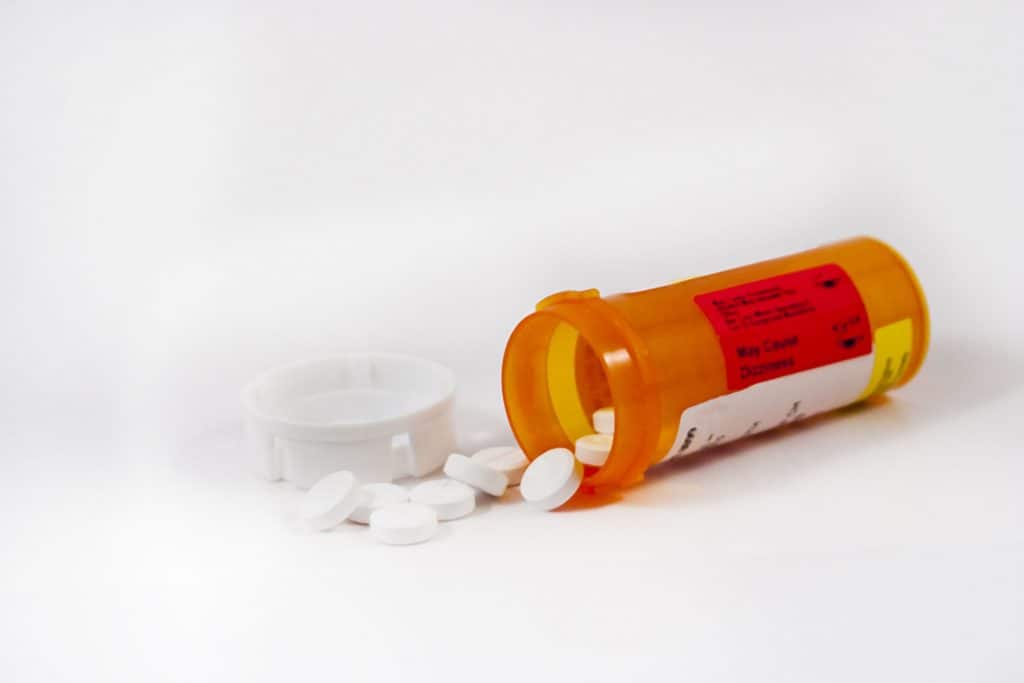Can You Take Expired Antibiotics? Here’s When You Can!
Posted by Prescription Hope - See Editorial Guidelines (Last Updated On: Fri Apr 28 2023)
Wondering if you can take expired antibiotics? You aren’t the first to ask this question. So, here’s the guide on “Can you take expired antibiotics”, along with reasons and suggestions.
But first, here’s a quick response to get you some important information, then we’ll cover more of the details.
Can you take expired antibiotics? 90% of the potency and efficacy of antibiotics can be retained 5 years from the expiration date if stored correctly. But like other medications, antibiotics do expire. Potency can remain for solid forms of antibiotics. However, taking expired antibiotics, unless for an emergency, is not safe and may be toxic.

Can You Take Expired Antibiotics?
According to the FDA, medications, including antibiotics, do expire, and expiration dates hold an important meaning that should not be ignored.
Because of this, the Center for Drug Evaluation and Research (CDER) officially recommends that medications, including antibiotics past their expiration date, should be disposed of.

An expiry date is a point at which the drug manufacturers have tested the potency, efficacy, and safety of the medication toward a relevant health condition.
This also means that the drug manufacturers have tested the use of antibiotics only up to the printed expiration date and cannot guarantee their effectiveness beyond that point.
We cannot stress enough that the antibiotic may not be safe to use beyond the printed expiry date and is unlikely to provide the expected results.
But what does prolonged testing reveal? Let’s look at that next.
Can You Take Expired Antibiotics – Do They Lose Their Potency and Efficacy?
The potency and efficacy of antibiotics or any other medications will start degrading from the point of manufacture. But further testing has been carried out on this.
Ongoing research states that if the right storage conditions are met, medications – including antibiotics can retain 90% of their potency for up to as much as 15 years after expiration.
Therefore, it is believed that antibiotics can retain a significant portion of potency for up to 10 years after their expiration date.
The best evidence that antibiotics and other similar medications may retain their potency beyond expiration is the Shelf Life Extension Program (SLEP) undertaken by the FDA for the Department of Defense. This program was carried out to reduce medication costs for the military.
The SLEP program found that around 88% of 122 medications, including antibiotics, retained potency for more than one year. The program determined that the average expiration extension should be 66 months and a maximum extension of 278 months, depending on the medication, of course.
It’s also important within the question, “Can you take expired antibiotics,” to add that these antibiotics were stored in optimal storage conditions. These may be different conditions than many people would store them. More on storage shortly.

What Form of Antibiotics Will Retain Potency and Efficacy After Expiry?
This retaining of potency for antibiotics is true for most solid forms of antibiotics, such as tablets and capsules.
Antibiotics in solution or liquid form will lose their potency and efficacy after expiration and should never be used beyond this point. This is because liquid antibiotics are susceptible to bacterial contamination after reconstituting.
This is suspected to be what happens because of certain nonsterile compounding procedures and the addition of nonsterile water to liquid antibiotics.
Aside from this, expired liquid or solution antibiotics will change their appearance and odor after expiration fairly quickly because of several compositional changes.
Therefore, this would make it more obvious that the liquid or solution form of antibiotics has diminished in potency or efficacy and is therefore not safe to be used after expiry.
Even some solid forms of antibiotics can have a narrow therapeutic index, so a very minor decrease in pharmacological activity can result in serious consequences for patients.
One such antibiotic is monoclonal antibodies. Such medications should not be used beyond the expiry date.
So, due to the varieties of medications and varying results from different controlled experiments, it’s debatable whether most antibiotics will retain their potency and efficacy after expiration.
The ability of antibiotics to retain their efficacy after they expire also depends on the conditions they are stored in.
On that point, it’s important to state that some antibiotics can even expire and be unsafe to use before reaching the expiration date if the right storage is not met.

How to Store Antibiotics to Retain Potency Beyond the Expiry Date
The best and most obvious way to store antibiotics is to follow any storage instructions provided in the packaging. This rule also applies when storing other medications.

Any antibiotics should remain stable and retain their potency when stored in dry, cool spaces away from light or heat.
Avoid leaving your antibiotics in the car. It can be exposed to outside environmental conditions, such as cold and heat, and may reduce its potency.
Sometimes such exposures can cause the antibiotics to go bad before the official expiry date.
Keep antibiotic packaging bottles tightly capped, away from humidity and extreme temperatures.
It is highly recommended that you do not store antibiotics in bathroom cabinets as it can be affected by heat and humidity.
It’s also important to mention that if antibiotics expire before the expiration date due to improper storage, they may exhibit color changes or may give out an odor.
Can You Take Expired Antibiotics – Is it Safe?
Even if the potency and efficacy of antibiotics may remain after expiration, do not take the expired antibiotics. Even if there is no evidence of the antibiotics expiring or going bad, you should never take expired medicines.
If for some reason it is an emergency and your antibiotics are past the expiration date, but there is no other evidence of the medicine going bad, then it may be acceptable.
However, you should call your doctor for advice beforehand. Taking expired antibiotics can cause more harm than good in some cases.
Other Safety Factors:
Other than this, it is not safe to use expired antibiotics because of the following factors:
- You may be taking antibiotics even when you don’t need them, or taking them when it’s not necessary could make you fall ill or overdose.
- If you’re taking expired antibiotics, that means you’re likely unwilling to visit the doctor for a medical condition you’re suffering from but reaching for relief from expired antibiotics.
- Taking expired antibiotics could prevent the diagnosis of other new medical conditions.
- Antibiotics could also interact with any new medical conditions you’ve developed since the initial prescription.
- Antibiotics have side effects that are sometimes serious. So taking expired antibiotics when you don’t need them may lead to further issues.
- Taking expired antibiotics when you don’t need them medically may put you in a condition of antibiotics overuse. This could kill good bacteria that are important for your health and well-being. It can also lead to gastrointestinal problems like diarrhea and yeast infections and put a person at risk for a dangerous C. difficile infection.
- You could be taking an incorrectly expired antibiotic, or the right expired antibiotic but in the wrong doses, both of which could be dangerous.
- There may have been a gap between taking antibiotics. Whether you should start again could be a significant factor in their effectiveness.
- Taking incomplete doses of expired antibiotics or taking them when not required could create antibacterial resistance. Antibacterial resistance is when some bacteria learn to defend and fight against the antibiotic the more we use it. This means that they’ll be hard to destroy with most kinds of antibiotics, as they are resistant. Antibacterial resistance is also possible with sub-potent expired antibiotics.
Are Expired Antibiotics Toxic?
Decades ago, a handful of cases were reported with expired oral antibiotic tetracycline causing toxic reactions.
This is where a reversible form of kidney damage called Fanconi syndrome was identified in patients who took the oral antibiotic tetracycline after it expired.
Many believe this toxicity could have resulted from tetracycline degradation products (epi-anhydrotetracycline or anhydrotetracycline).
These patients also suffered from nausea, vomiting, and metabolic acidosis within 2 to 8 days of taking the expired antibiotic. However, no such toxic cases with expired oral antibiotic tetracycline or related antibiotics, such as doxycycline, have been reported lately.
You can also read our other article on general medication expiry dates.

Can You Take Expired Antibiotics – Closing
We hope this has been useful in understanding whether you can take expired antibiotics. As always, this is not intended as medical advice; we would always recommend consulting a doctor before taking or changing any medications.
If you’re having trouble affording any of your medications, then Prescription Hope may be able to help. Enroll with us and see if you qualify to pay only $60.00 a month through Prescription Hope’s medication access service for each of your medications.

